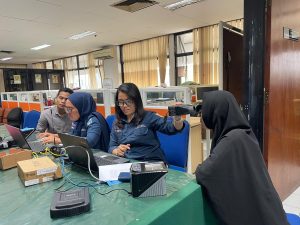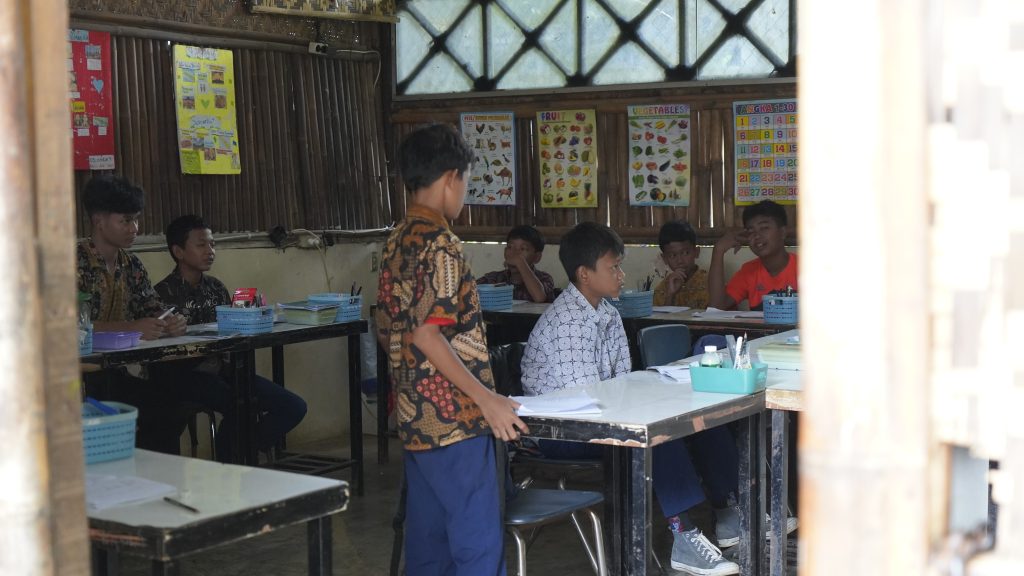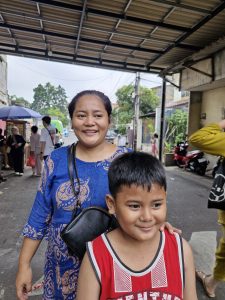BERITA
Building the Future of Waste Workers with Mahija
Mahija is committed to continuously supporting waste pickers, by helping them gain access and recognition to improve their quality of life.
As part of this commitment, Mahija has initiated programs focussed on improving the livelihood of waste workers. One of these programs is facilitating the issuance of ID cards for waste pickers who don’t have legal identification. Having an ID card is not just a symbol of recognition, it also opens access to essential public services, social protection and the healthcare they rightfully deserve.
From February to June 2025, Mahija has collected data on waste pickers, including; 250 entries for ID card applications, 84 data for Family Card (Kartu Keluarga) documents, 52 for adult birth certificates, 143 for children’s birth certificates, and 133 data for Social Security Agency (BPJS).

Based on this data, Mahija has collaborated with various parties, including Jakarta Provincial Office of Population and Civil Registration, to facilitate the issuance of 68 legal documents. This effort is still ongoing, as Mahija remains committed to supporting the legal recognition and inclusion of waste workers.
Wita Sumati, one of the waste pickers in Pondok Labu shared that many people in her neighborhood still lack official ID cards. Most of them face significant challenges; limited access to administrative services, missing documents, and the fact that many have migrated from other regions to Jakarta solely for work, making it difficult to meet the formal requirements.
“We feel truly helped by the Mahija team, who were willing to assist us in obtaining ID cards. The community here were guided starting from the data registration process, and even if there were missing documents, they helped take care of them until the ID was issued. Previously, some of our neighbors weren’t able to receive government aid simply because they didn’t have an ID card.” said Wita.
In addition to helping waste pickers gain official identification, Mahija also runs scholarships for the children of waste workers. This program aims to support children in continuing their formal education or progressing to a higher level, with the hope of creating a positive impact in their communities.

In the first half of 2025, Mahija distributed scholarships to 65 children in the Jakarta area and surrounding regions. The recipients were selected based on several criteria: children from low-income families, students currently enrolled or who had dropped out of school, and those with a record of academic performance. The primary beneficiaries of this scholarship program are the children of waste workers, especially waste pickers.

Although the government currently offers free schooling programs, many waste workers still struggle to cover daily school needs and allowances for their children.
Sri Wahyuni, the mother of Syadan, a scholarship recipient, expressed her gratitude upon receiving the program, “This program really helped me. After receiving the scholarship, I was finally able to buy my child a uniform, shoes, and school books. I hope Mahija continues to grow, and that this program can keep supporting families like ours.”
Through these programs, by providing legal documentation and enabling educational access, Mahija continues its mission to advocate for and empower waste workers, socially and economically. Because for Mahija, protecting the planet also means valuing the people who help protect it.
Subscribe to our newsletter

Contact
- info @mahijaparahitanusantara.com
- +62 811-1233-258
- South Quarter Building
- Tower C LT P Unit A-l
- JL RA Kartini Kav 8, Cilandak Barat
- Jakarta 12430
Quick Links
© MAHIJA PARAHITA NUSANTARA
